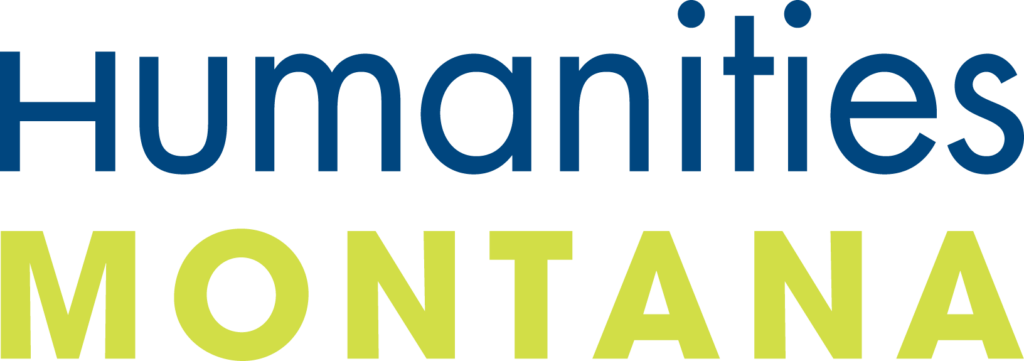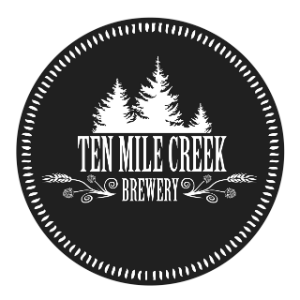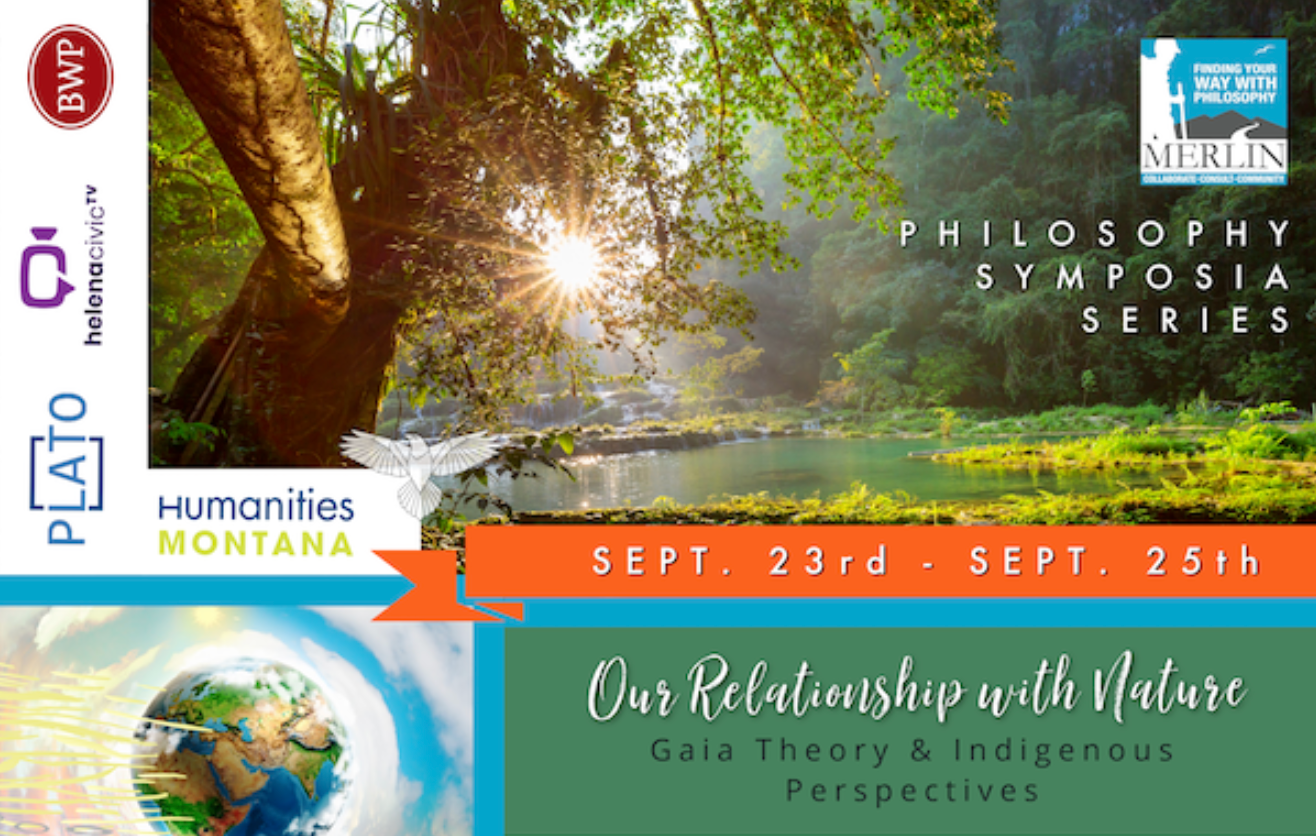
In this symposia series, led by guest scholars Martin Ogle and Lailani Upham we explored our relationship with nature as viewed by Gaia Theory & Indigenous worldviews, respectively. Conversational & interactive in format, each symposium covered different terrain in different venues. Events involved discussions and reflections about the inter-connectivity of earth (and its numerous inhabitants), mythology, science, literature, and ethics.
“I am trying to save the knowledge that the forest and this planet are alive, to give it back to you who have lost the understanding.”
– Excerpt from conversation with Paiankan, a contemporary Kayapo Indian leader (Amazonia). From “Wisdom of the Elders: Honoring Sacred Native Visions of Nature.” 1992. By David Suzuki and Peter Knudtson.
- The first in the set — “Gaia & Beer: Signs of a Living Planet” — was held at Ten Mile Creek Brewery and explored the connections between the brews we drink and Mother Earth. This will be an informal, fun symposia to open up the weekend.
- The second in the set — “Gaia Meets Indigenous Perspectives” — was held at the Holter Museum of Art and served as a formal introduction to Gaia Theory and Indigenous Perspectives on nature. The evening kicked off with a mingling meet-and-greet over appetizers and bevies, and live music by local musicians Spare Change. After happy hour, Lailani and Martin spoke to various aspects of Gaia & Indigenous ways of thinking, knowing, and moving through the world and how those relate to our relationship with and an in the natural world.
- The third in the set — “Implications & Applications” — was held on Merlin Nature Preserve and involved a combination of presentation, discussion, and exploratory wanderings by foot and hayride.
Audio-video recordings, images, and other resources from the series are provided below.
Symposia Videos
Audio and video recordings from our symposia series will be added here soon. In them meantime, here is a video highlighting the program and what kinds of thing we explored each day.
Opening Song (by guest Naomi M. Billedeaux Holcomb)
Flag Song, Chief Earl Old Person, ceremony, and coming together/relationships/community-building
Traditional knowledge, sources, and healing (Lailani Upham)
Resources
Gaia Theory
-
Reflections on the Life of James Lovelock
-
GeoSapiens.earth
-
Gaia Hypothesis — An article on the Environment and Ecology website
-
Gaia: The Big Mother — A 48min. documentary about the origin, evolution and future of the Earth, focusing on the geological concepts and the role of life and humans.
-
Gaia in Turmoil: Climate Change, Biodepletion, and Earth Ethics in an Age of Crisis, eds. Eileen Crist and H. Bruce Rinker (MIT Press, 2009)
-
Gaia Theory: Model and Metaphor for the 21st Century — A pdf of Martin Ogle’s chapter contribution to Gaia in Turmoil
-
Blog: “What’s Going On?” — A nature writing blog by one of our symposia participants — Shane Sater (a recent college grad and naturalist) — that reflects many of the sentiments embraced by Gaia Theory and Indigenous perspectives. He is a delightful writer, photographer, and very informative, taboot. His blog focuses on the complex stories of nature life here in Montana.
Indigenous Perspectives
-
Iron Shield Creative
-
The Piegan Institute
-
Indigenous Vision
-
Chief Earl Old Person — An article in NY Times about the legacy of Chief Earl Old Person
-
“The Buffalo Stone” — Article by Lailani Upham (Modern Hunstman, 2022)
-
American Indian Thought: Philosophical Essays, ed. Anne Waters (Wiley/Blackwell, 2003) — A collection of works by a diverse group of American Indian thinkers to discuss traditional and contemporary philosophies and philosophical issues.
-
Wisdom of the Elders: Sacred Native Stories of Nature, eds. David Suzuki and Peter Knudtson (Bantam Books, 1993) — A book that contains sacred stories and traditions on the interrelationships between humans and the environment as well as perspectives from modern science.
-
Podcast: The Ezra Klein Show: Best of This Conversation with Richard Powers is a Gift — A wonderful discussion that looks at our relationship with nature; the perspectives shared have deep resonance with both Gaia Theory and Indigenous perspectives on nature.
Podcast: Life in the Land: Blackfoot Nation (Jesse DeRosier, on Stories for Action)
Photos














































Our Symposia Scholars
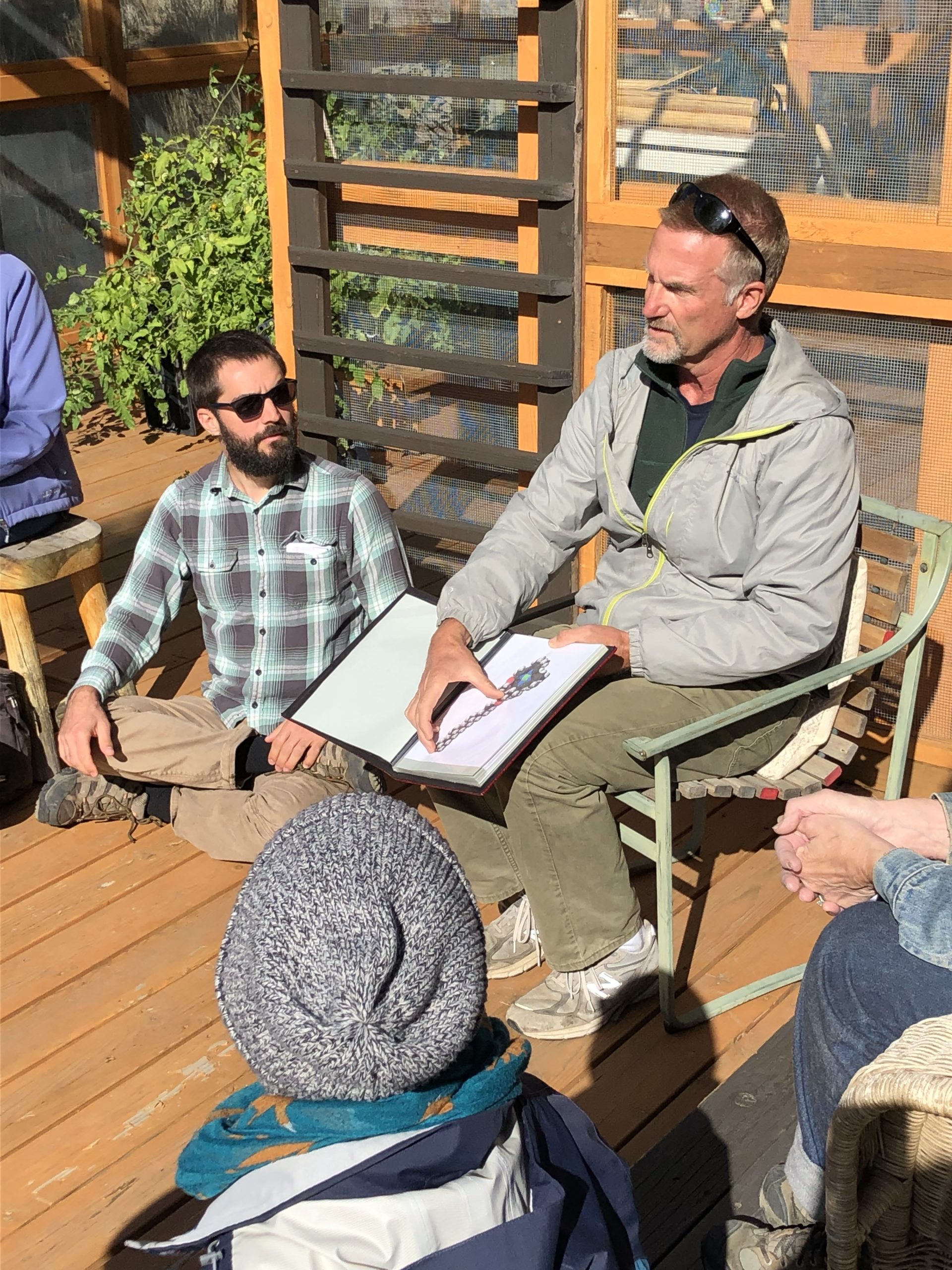
Martin Ogle
(martin@entrepreneurialearth.com)
Martin Ogle is an Educator, Wildlife Scientist, and former Chief Naturalist Emeritus for the Northern Virginia Regional Park Authority, and founder of Entrepreneurial Earth. He earned B.S. and M.S. degrees in Wildlife Science from Colorado State University and Virginia Tech, respectively.
Martin has served as an Instructor for Keystone Science School, Smithsonian Institute, and US Department of Agricultural Graduate School and has been recognized by Arlington Public Schools, Arlington County, and other organizations for outstanding contributions to the community.
Read more...
He has a received a Green Innovation Award, Krupsaw Award for Non-Traditional Teaching, and an Arlington Green Patriot Award.
Martin is adept at bringing people together to advance sustainable living in creative, fun and successful ways. His work is highly influenced by Gaia Theory — which Ogle has researched extensively and presents regularly on.
Martin currently lives in Louisville, CO with his wife Lisa and twins, Cyrus and Linnea.
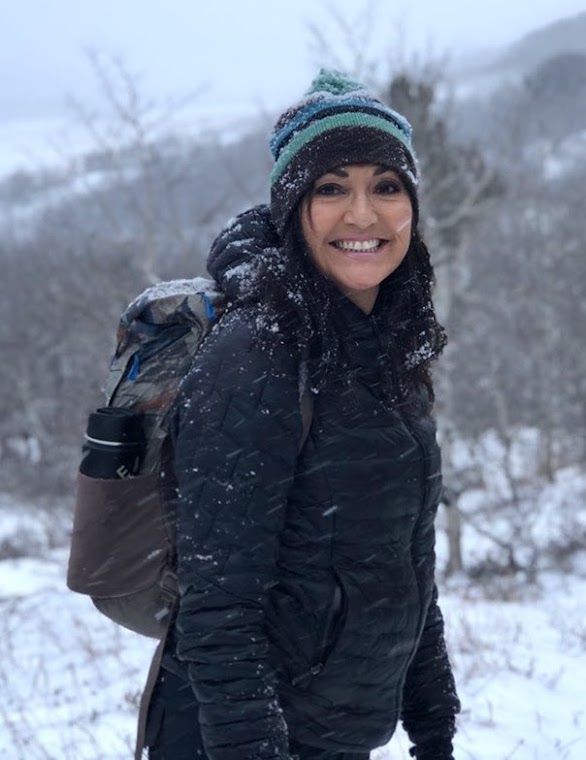
Lailani Upham
(ironshieldcreative@gmail.com)
Amskapi Pikuni (Blackfeet Nation) tribal member, and Aaniiih, Nakoda, Dakota tribal descent and an adventure explorer, photographer, videographer, writer, storyteller who travels throughout Montana to tell stories from an Indigenous perspective.
Lailani, grew up on the Blackfeet and Fort Belknap Indian reservations where she explored her home landscapes as a kid and got into trouble for taking off into the mountains (without notice) on “adventures.” She grew up hearing the stories and history of her tribal people and was grounded in identity through the passing down of oral traditions from her grandparents on both sides of her family and tribal lineage.
Read more...
She says her experience and passion has led her to a closer connection to nature, likeminded storytellers, while vamping up a hunger to encourage others to tap into their voice through written and visual storytelling.
Lailani is on the board of directors for the Freeflow Foundation, a non-profit organization based in Missoula, Montana, that delivers opportunities for creativity, space, and access to wild places for writers, artists, and leaders of all backgrounds. She also is an advisory board member for The Common Ground Project, based in Yellowstone, Montana, that connects people from all walks of life to foster understanding of each other and the environment through campfire retreats.
Another added service was to Wild Montana as a Native Conservation fellow where she fostered Indigenous land-based story hikes to advocate for public land protection. She taught tribal story-based video courses at Salish Kootenai College, and is a member of the Confederated Salish and Kootenai Tribal Climate Change Advisory committee.
Upham works to capture stories that inspire people of all walks of life to consider their relationship with nature, while advocating the preservation of tribal stories and public lands.
Layered by outdoor travel adventures and lifestyle, Lailani hopes through her work to share her vision of wild places, Indigenous culture, untamed landscapes to inspire others to explore for themselves new understandings and relationships.
Her visionary perspective has earned her opportunities to work on an award-winning journalism team, “Framing a Movement – The Media at Standing Rock, Montana Journalism Review a Special Report;”and also an award-winning film documentary project, The Blackfeet Flood, and film shorts Sixty Four Flood. She created a hobby storytelling YouTube channel called, Pikuni Bigfoot Storytelling Project to gather tribal encounters and stories of Sasquatch.
She worked as a reporter and photojournalist at the Flathead Reservation tribal newspaper, Charkoosta News, where thousands of news articles have been published in the 10 year span.
Her production studio is based on the Blackfeet Indian Reservation in Montana.
But beyond all the career stacks, Lailani is most proud of her three children, Ryan, Joseph, and Ashley; and three adorable grandchildren. Holly, Iverson, and Zion.
Sponsors & Community Partners
Thank you to our symposia series grantors Humanities Montana, The National Endowment for the Humanities, and The Philosophy Learning & Teaching Organization, to our community sponsors BWP Helena Great Northern Hotel and Helena Civic Television, and to our community partners Holter Museum of Art & Ten Mile Creek Brewery. Thank you also to our guest speakers Martin Ogle and Lailani Upham, to hosts extraordinaires Marie Z. Bourgeois & Ross P. Nelson, to event volunteers Mike Chapman & Mitch Conway, and to the Helena community.
